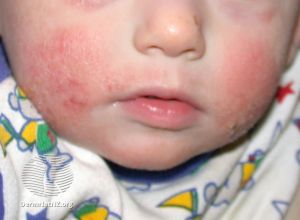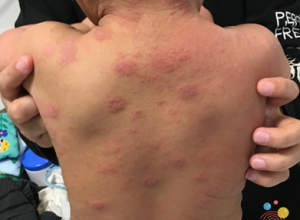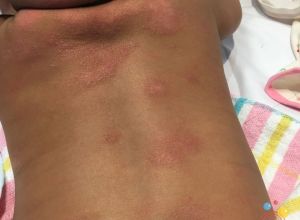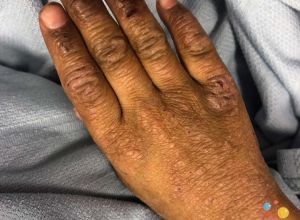Eczema in babies often appears at between 3-6 months of age although it can develop just after birth or anytime in childhood
The main features of eczema are
- Intense itch
- Dry skin
- Rash
- Redness
- Inflammation
In infants and babies, eczema affects the face, scalp and body with the nappy area usually spared. As your child grows older and becomes more mobile, the pattern of eczema changes to involve the elbow and the knee creases and sometimes affects the whole body
In children of Asian, black Caribbean, black African ethnic groups, eczema may present differently with eczema affecting the front surface of the knee or wrist, the skin may look bumpy and slightly darker rather than red
It is important to be aware of and look for signs of worsening eczema
Recognise a flare: A ‘flare’ is a worsening of the eczema. Skin may become red, sore, (more)itchy, crack or bleed
Recognise infected eczema: If skin suddenly worsens, weeps or crusts it could be infected and your child may need antibiotics – seek urgent advice if child unwell or the infection is widespread
Blisters or cold sores need urgent antiviral treatment – see your GP or seek medical advice the same day
Food allergy: this is rare - consider food allergy if eczema started as a baby. It is not usually the cause of eczema in older children






